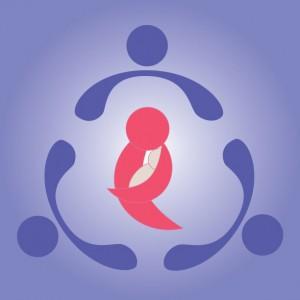4th Trimester Project & New Mom Health - organized by a team of researchers at the University of North Carolina's Center for Maternal and Infant Health, the 4th Trimester Project focuses on information and research about new mothers' experiences. They say: "Much attention is focused on babies while too often, women are left to navigate their health and care without enough information or support. Women often receive health information at birthing facility discharge when they are tired, overwhelmed, and may not even know what questions to ask. These gaps in care are missed opportunities, not only for health but also to affirm the importance of women."
Doulas: A doula provides non-medical support to a woman giving birth, and/or to the woman and family after the birth. Childbirth Connection offers a lot of information about various types of labor support, including the option of having a friend or family member provide this support. Several organizations offer training and certification to doulas, as well as directories for women looking for a doula in their geographic area. See BirthWorks, DONA International, and CAPPA (Childbirth and Postpartum Professional Association). There are also some volunteer doula programs for people in special circumstances: Operation Special Delivery for families in the military services. For a listing of volunteer doula programs see Radical Doula.
Postpartum Support International is a nonprofit organization offering information and support to women experiencing mood disorders after pregnancy, including postpartum depression. They also offer education and support to family members. There are weekly "chat with an expert" phone sessions, as well as a warmline (not for emergencies): 1-800-944-4773. Much of their work is done by volunteers who have themselves experienced postpartum depression.
Perinatal Mental Health Alliance for People of Color - PMHA-POC is a program within Postpartum Support International, working to "further integrate information about racism, equity, and oppression" into PSI. Their work is "to build capacity among perinatal professionals to better support individuals, families, and communities of color around perinatal mood & anxiety disorders."
